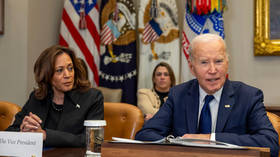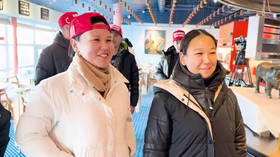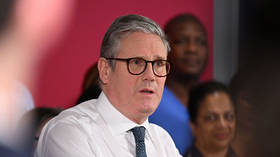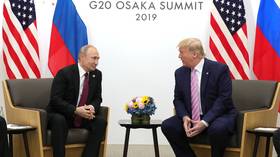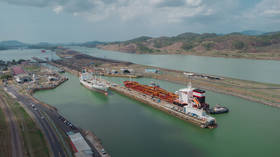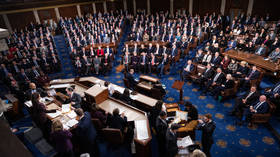‘Europe’s bargaining position weakens amid Russia-China gas deal talks'
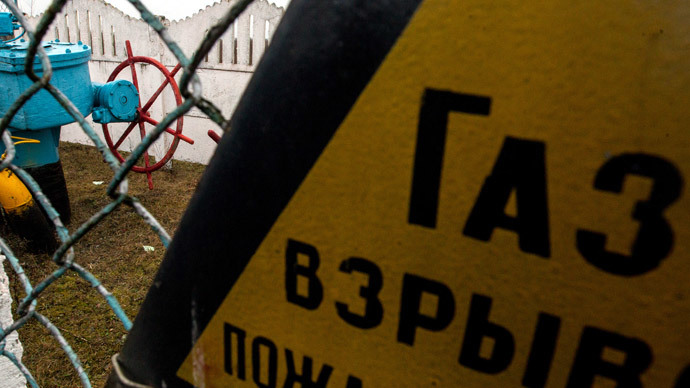
While Europe searches for alternative energy resources and partners to decrease its dependence on Russia, its bargaining position is weakening with China and Russia about to sign a historic gas deal, professor of political economy Jeffrey Sommers told RT.
RT:China and Russia are expected to sign ahistorical gas deal. How much could it change the energy market dynamics in the region?
Jeffrey Sommers: I don’t think consequences will be all that extreme for Europe. If we take a kind of long view on this, the Germans, the French and the Russians have been looking to have better relations with each other and increase partnerships since the 1970s and they more or less have done that. The US is trying to interfere with that as much as it can but not always with success. Given the situation in Ukraine, we already have business leaders both in Germany and France saying that ultimately we can expect many more difficulties in terms of long range relations with Russia. As far as the gas deal goes between China and Russia, the only thing that it might do with regards to Europe is to leave Europe with a little bit less bargaining power over prices for gas, so Russia's position is a little bit stronger vis-à-vis Europe when it comes to bargaining future contract prices for gas. That said, the Russian position is going to be just a little bit weaker in the negotiations with China over prices because they know that Russia wants to collude a deal as quickly as possible, so that they do not have to be so dependent on the European market of gas.
RT:Is it fair to say that with China becoming a major importer of Russian gas, Europe could lose some of its leverage when dealing with Moscow on gas issues?
Former British diplomat William Mallinson on the Chinese-Russian gas deal:“These negotiations have been going on well over ten years. If [the contract] is signed, it will obviously make Gazprom less reliant on profits of European markets. This will put it [Russia] in a stronger position because Europe will still need cheaper Russian gas than for example, American LNG, liquefied, which is extremely expensive and the Americans would love to sell it to Europe. So it actually makes Russia even more independent than it already is and less reliant on the European markets.”
JS: Absolutely. I do not think it is going to be huge, but certainly they will lose some leverage. The anticipated amounts of exports to China are going to be something in the order of about half of what Europe imports currently, so that is a substantial amount of gas. So it is certainly going to weaken the position of Europe in terms of bargaining, no doubt.
RT:So Europe threatens to slap trade sanctions, Russia goes to China. Is there any connection here do you think?
JS: Yes and no, this deal between China and Russia has been one that has been talked about for a full decade, so there is no surprise that there has been an ongoing negotiation. I think the timing in terms of finally concluding the deal is definitely related to the issue of proposed trade sanctions against Russia by some European states. Now, this is actually disadvantageous for Russia, just a small amount, marginally, in terms of its negotiations with China, not much, but it is a disadvantage; Europe is going forward in terms of their negotiations over gas prices.
RT:How much does Europe need Russian energy resources?
JS: They have been decreasing their imports of Russian gas, they are going to be moving towards renewable resources of energy. They have also begun importing natural gas from Algeria, they are also looking to identify new sources of natural gas in the North Sea. And of course they are also talking about fracking on the continent. The importance of Russia for European gas imports is actually declining somewhat but it is still very important. Then the US is talking about liquefying its natural gas and then exporting it to Europe, but all that said, Europe still depends on Russian gas; they cannot just cut themselves off in a short term. The demands for gas are just too great for that.
The statements, views and opinions expressed in this column are solely those of the author and do not necessarily represent those of RT.
The statements, views and opinions expressed in this column are solely those of the author and do not necessarily represent those of RT.


